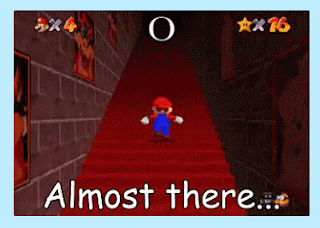Film adaptions are famously long-winded and difficult. There’s even a phrase for it – development hell. According to Douglas Adams:
“The Hollywood Process is like trying to grill a steak by having a succession of people coming into the room and breathing on it.”
For writers it’s notoriously soul-destroying. The processes in children’s book publishing aren’t that bad, thank goodness, but it may not all be plain-sailing from contract-signing to publication and it can be difficult to maintain enthusiasm for a writing project when it goes through difficult times. After the initial joy of having a book accepted, there may be many rocks to navigate and perhaps some becalming, too.
Examples of reversals a writer might encounter
* An editor wanting you to rewrite parts of your content, perhaps even more that once.
* An editor leaving and your project going into temporary limbo.
* New staff arriving and wanting to shift the focus of the project.
* Changes from an international publisher wanting to buy rights, but only if you play ball.
* Delays while an artist is found.
* Delays you just don’t grasp due to lack of communication.
I am giving you a list of worse scenarios here to show you that all these things can occur to all writers at some point, and if they happen to you – well, you are not alone. Many of your fellow writers will recognise the situations and sympathise.
My suggestions
Redevelopment – Get it clear in your mind what the editor is saying they want. If it’s not clear then ask them to make it clearer. Discussing it with them face-to-face will greatly help here.
Be flexible and open-minded. Think around the suggestions being made. Are they a good idea? Is there another solution you think might work better and that you could both think about? Be as positive as is possible. You’re working together to make the work great.
A good thing here is to rewrite your brief for yourself. What was your initial idea? What were its strengths. What were you writing it for? Reconfirm these things to yourself to reinforce your confidence in your decision.
Keep all emails so you have a development trail of what’s been asked of you. If things change a great deal over and over again (Yes – actual development hell occurs) you are perfectly justified, and it’s professionally acceptable, to ask for more money.
If it comes to the point where you think ‘no this is not what I want’, then say so calmly and logically along with your reasons. Your editor might agree with your points after thinking about it. If not, then it’s time to move the project to someone else. That is a positive thing to do for your project. It’s not your failure. Shut the door on development hell.
There’s not much to be done about delays but don’t be hesitant to communicate with your editor and ask them what’s going on.
Difficult projects can really take a toll so take care of your mental health. That means remembering that you are creative, for example, by taking time out to play and by working on other things.
 |
| Do what you need to do to look after your head. (pic: my friend John Miles found someone meditating on the top of Glastonbury Tor last week) |
Writing is hard and sometimes the process of publishing makes it harder. That’s the simple truth of it. Be ready but be positive, be open-minded and be true to what you are aiming for.
Moira Butterfield is an internationally-published author whose Nosy Crow book Welcome To Our World has just been translated into its 15th language. Her newest book – Sometimes I’m a Baby Bear, Sometimes I’m a Snail (|Welbeck) aims to give young children tools to express their feelings.
Moira Butterfield
moira@moiraworld.co.uk
www.moirabutterfield.co.uk
twitter @moiraworld
instagram @moirabutterfieldauthor



3 comments:
Really useful post, Moira, and good to remember if you're feeling mauled by the development process.
A voice of wisdom, Moira. All so true.
Thanks for sharing this. Really helpful.
Post a Comment